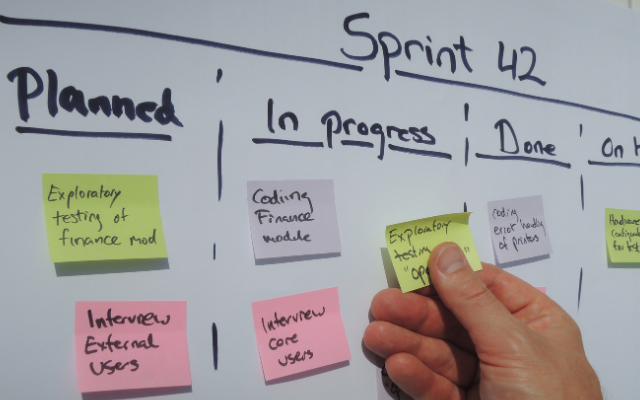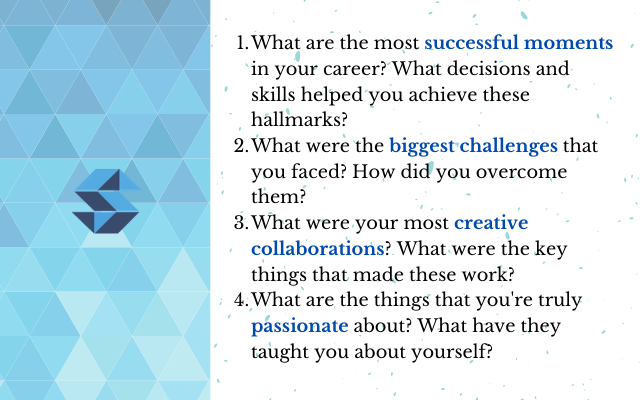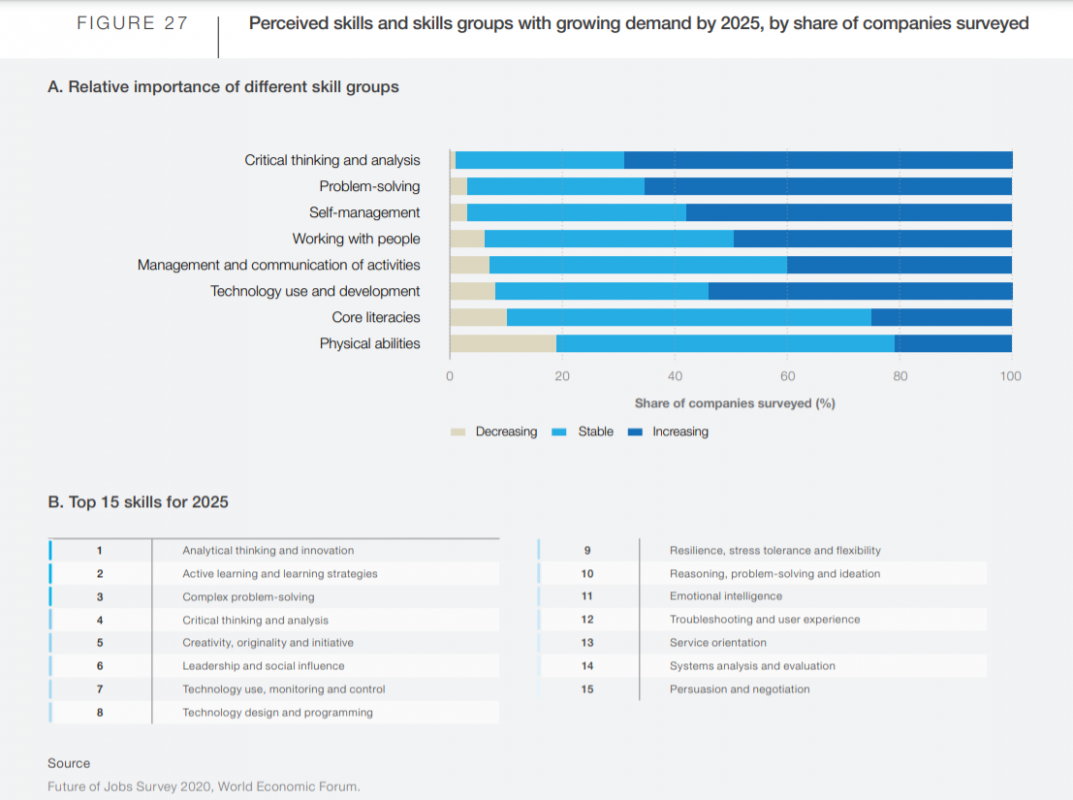By Sally Robertson
I used to work for a think tank in the research dissemination department. I was in-charge of setting up events, brownbags, seminars, and policy dialogues in public and private institutions all acorss the country. My clients were researchers and policy experts who helmed seminars ranging from 30 to over a thousand in attendance. I had steady career going until the pandemic hit. In the early days of the lockdown, I realized that the events industry wasn’t going to get back on its feet any time soon, and that I needed to prepare myself for a major career shift. To start that process, I needed to identify and sell myself on transferable skills that I gained from working in events management.
Here’s how I did it.
What skills are industries looking for?
The conventions of writing resumes dictate that highlighting transferable skills is the best way to sell yourself. These skills are called transferable because they are needed in almost any industries. They require little training to repurpose when you’re changing jobs. According to the to the World Economic Forum’s Future of Jobs Report, 2020’s economic chaos highlighted the importance and increased the demand for the following skills:
- Critical thinking and analysis
- Complex problem-solving skills
- The ability to manage professional and personal growth and needs through active learning, resilience, stress tolerance and flexibility
- The ability to work well with others
- Communication skills
With plenty of companies facing radical restructuring in order to adapt to the challenges of the global pandemic, it’s easy to see how these skills are going to come in handy. Employers are on the look out for people who are going to strengthen their organizational needs. It’s important for professionals to identify their transferable skillsets and present them clearly to potential employers.
How do I identify my transferable skills?
When you’re faced with uncertainties it can be really stressful to look back and take stock of your life. There’s a chance that you’re going to end up feeling remorseful about lost chances or stalled progress. Things can seem a bit lost. But as a matter of perspective, there’s also a good chance that, on the flipside, you’ll actually end up feeling grateful and invigorated. Especially once you’re able to identify just how much you’ve accomplished and everything you’ve learned along the way.
So, in order to identify transferable skills, ask yourself:
- What are your most successful moments?
- Identify the decisions and skills helped you achieve these hallmarks
- What were the biggest problems that you faced in your career?
- State the decisions you took to overcome them
- What were your most creative collaborations?
- Identify the key things that helped you work successfully with your collaborators
- What are the things that you’re truly passionate about?
- Emphasize what your passions have taught you about yourself
Once I got through these questions myself, I was able to identify 5 important skills that could help me transition to different industries.
5 Transferable Skills from Working in Events Management
1. Organizational skills—managing risks with preparation
You can never be too prepared. Events management is always a high-risk affair. Even when you think you’ve got it covered, it’s important to make room for the unexpected—a lot of room. The scale of preparation depends on the situation. Whether you’re hosting an outdoor or indoor event, or you’re whether you’re accommodating 30 or 300 hundred attendees, proper preparation is being able to anticipate and mange the commensurate.
In my experience, I’ve learned to distinguish what good preparation is from poor ones. Poor preparation happens when you take the process for granted. After some time of working the same events circuit while, the tendency is to let the growing familiarity render you complacent. Some events managers end up paying less attention to routine tasks, skipping them or leaving them for last. As a result, this complaceny leaves you actually less prepared.
It’s important to remember that while some things appear constant, many are not. So as long as you’re dealing with people, things are subject to change.

Proper organization is the foundation for good preparation. The best presentations I’ve seen are from the presenters who come early to events and submit their presentations for test runs. They’re able catch errors before they go live. They know how to adjust to their audience, using the available resources of the venue to their advantages.
Similarly, the best events are ones where events team run rehearsals. I’ve made it a practice with my events team to check into the venue at least a day before the event, reviewing everything from the set to the food guidelines, and identifying points for clarification. It is only possible to communicate clear instructions when you’ve seen everything at work.
2. Research skills—finding perspective and opportunities through research
In the types of events I plan, we work with a lot of veteran researchers and policy experts. Prior to events, they or their assistants normally send in their CVs and profiles. Most already have their professional experience on LinkedIn or their Facebook profile, and will link those instead. The organizers often use these for documentation and marketing purposes. But those are not the only benefits.
As organizers, we make it a point to learn a lot about our events line-up. It helps make our work more seamless. For example, when it comes to food preferences or cultural sensitivities; a thorough knowledge of the people we’re inviting is necessary to make their experience much more comfortable.

Research can also inform the way you design the environment. In my experience, seating people is a talent. In research seminars, the most important collaborations and opportunities arise from being at the right place at the right time. Proper research provides perspective on potential opportunities. This applies both events organizers and attendees.
3. Communication—communicating strategically
Communication skills are almost guaranteed transferable skills in events management. And yet even with the most seasoned events staff, communication can be tricky. You might think that you’ve covered everything in your email and still be surprised on D-Day when a speaker or attendee admits that they weren’t aware of your instructions.
It’s important, therefore, not just to know how to communicate, but to communicate things strategically. Understanding your audience and how to reach them is instrumental to getting them to pay attention to your message.

In policy research, there’s a dated assumption that the best way to reach people is to contact them professionally—by email. There’s nothing wrong with this. But I’ve learned that the best way to reach people via email is to create a staggered campaign, whereby you send follow-up emails stretched over time. Each email focuses on a key and specific instruction, while citing the previous one as reminder.
Nowadays, events organizers optimize the visibility of their events by using a variety of channels, linking their email networks to their website, LinkedIn, Facebook, or Instagram pages.
Open and strategic communication with partners, collaborators, presenters, and other invitees compels your audience to look froward to the event, and creates the unique sensation that everyone has a stake in its success.
4. Agility and Responsiveness—staying mindful during stressful situations
One of the benefits of preparing and doing your research is not removing the possibility of meeting any problem—not really. I mean, sure, reducing risks is part of it. Knowing that you’re hosting an event with a partner who is notorious for change orders helps you plan and adjust expectations accordingly. But more importantly, preparation and research helps you stay mindful of the process.
In my experience, preparation gets you in the mood and encourages you to look forward to the event. You’re compelled to align your actions with these goals in mind. At the same time, if you accompany your preparation with engagement and communication with you peers and other collaborators, you get a sense that you’re not jus a participant. You are instrumental in paving the path to the final event.

So, how does this help you become more responsive and agile in the face of uncertain circumstances?
Once you become privy to and focused on the process, you become cognizant of the situation and the resources available. In events, in general, one of the biggest reasons why people make mistakes is because they’re trying to do a lot of things at the same time. There’s an individual limit to what you can stay on top of. Focusing on the process and identifying the network of responsibilities, including the scope and the limits of your own, can help you make the right decisions when the time comes. Agility and responsiveness rely on the cognizance of the whole picture, of knowing how much you can do and when and who to tap when you’re at your limit.
5. Trust Your Team—working together towards a goal
So far I’ve listed down transferable skills you gain from working as an individual in events management. But getting any event off the ground is really a whole-of-the-team effort. It’s important to be able to work well with others because the reality is, you can’t do it all by yourself. You can do all the research and all the prep work, but you do not want to be doing everything all at once. If focus is the key ingredient to becoming agile and responsive, then you are going to need other people to give you that room.
Really good teams are made up of people who are good at their jobs, of course. But the ones that really make it happen are the people who trust one another to do their jobs.
The sign of a good events manager is someone who communicates their plans and objectives clearly, and require the same degree of transparency from their assistants. I’ve seen micromanagers run down their whole team and it just wears their process down. The most successful events that I’ve done is with teams who own their processes. Effective managers help align the tasks and jobs of their assistants and partners with the overall objective of seeing the event through.
Trust is a measure of teams that have a good process, just as much as it is an indicator of success.
In summary, I’ve identified five transferable skills that can help me transition from the industry of events management into other careers. I’m great with organization and research, I’m agile and responsive, and I work with people. COVID-19 has been incredibly cruel, but it has also catalyzed me to take an honest stock of what I have to offer. It’s true that once you’ve set aside the limits, the possibilities are endless.




